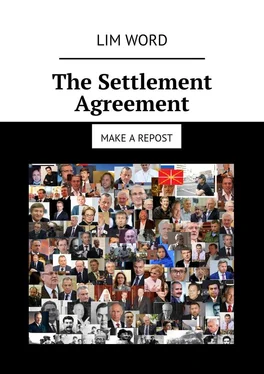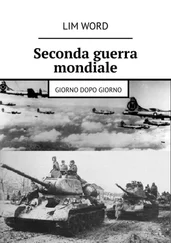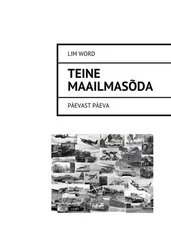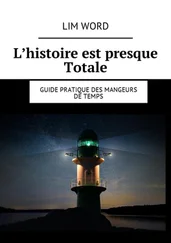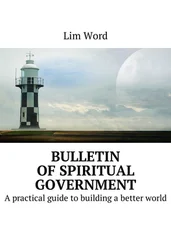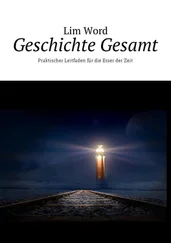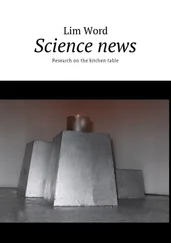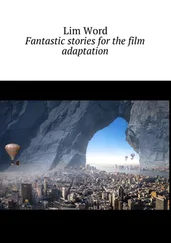Lim Word - The Settlement Agreement. Make a repost
Здесь есть возможность читать онлайн «Lim Word - The Settlement Agreement. Make a repost» — ознакомительный отрывок электронной книги совершенно бесплатно, а после прочтения отрывка купить полную версию. В некоторых случаях можно слушать аудио, скачать через торрент в формате fb2 и присутствует краткое содержание. ISBN: , Жанр: Публицистика, Справочники, Прочая документальная литература, на английском языке. Описание произведения, (предисловие) а так же отзывы посетителей доступны на портале библиотеки ЛибКат.
- Название:The Settlement Agreement. Make a repost
- Автор:
- Жанр:
- Год:неизвестен
- ISBN:9785449070548
- Рейтинг книги:3 / 5. Голосов: 1
-
Избранное:Добавить в избранное
- Отзывы:
-
Ваша оценка:
- 60
- 1
- 2
- 3
- 4
- 5
The Settlement Agreement. Make a repost: краткое содержание, описание и аннотация
Предлагаем к чтению аннотацию, описание, краткое содержание или предисловие (зависит от того, что написал сам автор книги «The Settlement Agreement. Make a repost»). Если вы не нашли необходимую информацию о книге — напишите в комментариях, мы постараемся отыскать её.
The Settlement Agreement. Make a repost — читать онлайн ознакомительный отрывок
Ниже представлен текст книги, разбитый по страницам. Система сохранения места последней прочитанной страницы, позволяет с удобством читать онлайн бесплатно книгу «The Settlement Agreement. Make a repost», без необходимости каждый раз заново искать на чём Вы остановились. Поставьте закладку, и сможете в любой момент перейти на страницу, на которой закончили чтение.
Интервал:
Закладка:
“Oil, gas, other natural resources belong not to the state, but to the people. All profits from the extraction of natural resources go not to the budget, but are divided equally among Russian citizens. In today’s prices, after the elimination of corruption schemes, each family will receive a monthly payment of about a thousand dollars only from the sale of oil and gas.”
“The Russian language is the answer to the national question. Everyone who passes the exam for fluency in Russian and knowledge of Russian culture, can become a citizen of Russia regardless of the place of his permanent residence. Thus, the citizenship policy will simultaneously become the international policy of Russia – a way of Russia’s expansion into the world through the export of the main and unique achievement of Russian civilization – the great Russian culture and the great Russian language.
The Russians are maximalists, and exactly what appears to be a utopia is most realistic in Russia, “Berdyaev wrote. Russia can not survive if it does not become liberal, but if Russia becomes liberal, it will be the most!
Christ is Risen!…”
Berezovsky writes two personal letters to V. Putin, with regrets about a lot of unpleasant things, and an expression of a wish to return to Russia (amnesty for money). While this message is being analyzed in the Kremlin and the Supreme Court, on March 23, 2013 in the house of his ex-wife (Berkshire county), Berezovsky finds his security guard, the former Israeli intelligence agent Mossad, hanged. The bathroom where the suicide occurred was allegedly locked from the inside, but this position is disputed by many authoritative sources. According to The Guardian, the ex-oligarch finds a broken rib.
Boris Berezovsky is buried according to Christian custom on a huge (350 thousand “places”) necropolis cemetery Brookwood (Surrey). The photo of the grave, which is represented here – all that is left of it in free use on the resource “Google”.
Private life. The first wife – Nina (Korotkova), the beginning of the seventies, two daughters. The second marriage – Galina (Besharova), 1991, daughter and son. In 1993, Galina went to the UK, filed for divorce and, thanks to the same English judicial system, reaches a record £ 200 million in compensation. The oligarch lives in a civil marriage with Elena Gorbunova, becomes the father of two more children and, in 2013, on a lawsuit from London, of course, pays, for all the feelings shown to him, a few million pounds more. Hobbies – theaters, restaurants, nightclubs.
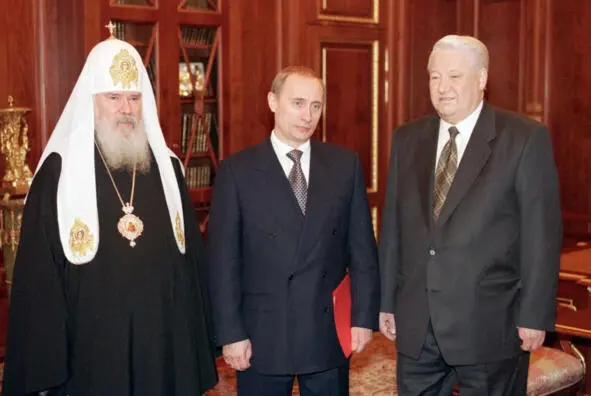
From left to right: 1. Boris Yeltsin 2. Vladimir Putin 3. Alexy the Second, photo 1999
1. Boris Yeltsin. Birth – 1931, with. Bout of the Ural region (as it is quite usual then – in a family repressed and miraculously survived – peasant workers) … admission to the Ural Polytechnic Institute. S. Kirov… graduation from the university with the qualification “engineer-builder”. Theme of the thesis, if it is, you are interested in the friends – “Television towers”. In the trust “Uraltyazhtrubstroy” Boris Nikolayevich works as a joiner, concrete worker, plasterer, crane operator, foreman, foreman, site manager (1957). Since 1966, Yeltsin is the director of the Sverdlovsk House-Building Plant. After passing several more steps of the career ladder, the future President becomes secretary of the Sverdlovsk Regional Committee of the CPSU, responsible for the industrial development of the region, and later the first secretary of this regional committee. The post, approximately equal to the current situation of the governor, B. Yeltsin occupies until 1985. During this time, Boris Nikolaevich differs, in particular, by erecting the highest in the country, marble-covered 23-storey building of the regional committee of the CPSU (nicknamed “Tooth of Wisdom”) and, according to the decision of the Politburo, the demolition of the house of the Ipatievs (the place of execution of the royal family). In general, as an economic manager, B.N.E. shows itself not bad.
Since 1979, B. Yeltsin is a deputy to the Supreme Soviet of the USSR. In 1981, he also became a member of the Central Committee of the CPSU. In 1985, on the recommendation of Yegor Ligachev, secretary of the CPSU Central Committee, a prominent figure in “perestroika”, Boris Nikolayevich was transferred to Moscow, as secretary of the Central Committee for Construction.
At the end of the same significant year, B.N.E. occupies the post of first secretary of the Moscow City Committee of the CPSU. The company starts cleaning the Soviet and party apparatus (strange, but it’s really not the same thing), food fairs are organized, the demolition of historic buildings is prohibited, and the Day of the City begins to be celebrated. Also, Boris Yeltsin gets some popularity, and popularity among the people, thanks to demonstrative trips on public transport (followed by a swift “diving” into the official “Volga”), personal checks of shops, warehouses, etc. Since autumn 1987, the MP publicly criticizes the leadership of the party, the incipient “personality cult” of Mikhail Gorbachev, the slow pace of perestroika, and so on. A wave of counter criticism moves Yeltsin to “just” the post of USSR Minister for Construction. The next wave – the popular popularity, hears Boris Nikolayevich, through the step of the deputy from Moscow, to the heights of the Presidium of the Supreme Soviet of the USSR. In May 1990, Boris Nikolayevich was elected chairman of the Supreme Soviet of the RSFSR. On June 12 of the same year, the Congress of People’s Deputies of the RSFSR adopted the Declaration on State Sovereignty of the RSFSR. This day, as is known, is now a state holiday of the Russian Federation. The political weight of Boris Yeltsin proper, in Russia, is rising. Exactly a month later BNE criticizes the party, Mikhail Gorbachev, and declares his withdrawal from the CPSU.
So, the start is given, and since August 1990, one after another, the republics of the USSR declare their sovereignty. Regions of the Russian Federation are broadcasting considerably, much more independence: the Komi, Adygea, Buryatia, the Gorno-Altaisk Autonomous Soviet Socialist Republic, Chuvashia, the Yamalo-Nenets Autonomous Okrug, Tatarstan, and other national entities. The Russian Federation is on the verge of transformation into a confederation (such is, unusually for us, a loose one).
Be that as it may, MS Gorbachev wants to preserve the USSR – and, of course, with his post of President. The Fourth Congress of People’s Deputies of the USSR (December 24, 1990) proposes a new draft of the Union Treaty.
In the meantime, ethnic Latvians, Lithuanians, do not want to wait for any bureaucratic procedures, and go to mass (50 thousand people) rallies. Only the faithful of the OMON are opposed to them. The assimilated, or simply apathetic Russians, do not show any noticeable activity. Bulky tanks when it comes to confronting such a continuous front, are not sufficient, reliable help. A total of six or ten people die, Latvia and Lithuania formally remain in the jurisdiction of the USSR, but… this is already an obvious wormhole in the body of the colossal state.
Boris Yeltsin sharply criticizes Gorbachev for the actions of the military, and suggests transferring all power to the Federation Council (the heads of the union republics). Slack response of Mikhail Sergeyevich – organization March 17, 1991 All-Union referendum on the renewal and preservation of the USSR. Yes, most citizens of the Soviet Union (except for the Baltic countries, Georgia, Moldova, Armenia) are “for”; but when such things are generally put to the vote, it is clear that, in any case, the final is close.
Читать дальшеИнтервал:
Закладка:
Похожие книги на «The Settlement Agreement. Make a repost»
Представляем Вашему вниманию похожие книги на «The Settlement Agreement. Make a repost» списком для выбора. Мы отобрали схожую по названию и смыслу литературу в надежде предоставить читателям больше вариантов отыскать новые, интересные, ещё непрочитанные произведения.
Обсуждение, отзывы о книге «The Settlement Agreement. Make a repost» и просто собственные мнения читателей. Оставьте ваши комментарии, напишите, что Вы думаете о произведении, его смысле или главных героях. Укажите что конкретно понравилось, а что нет, и почему Вы так считаете.
